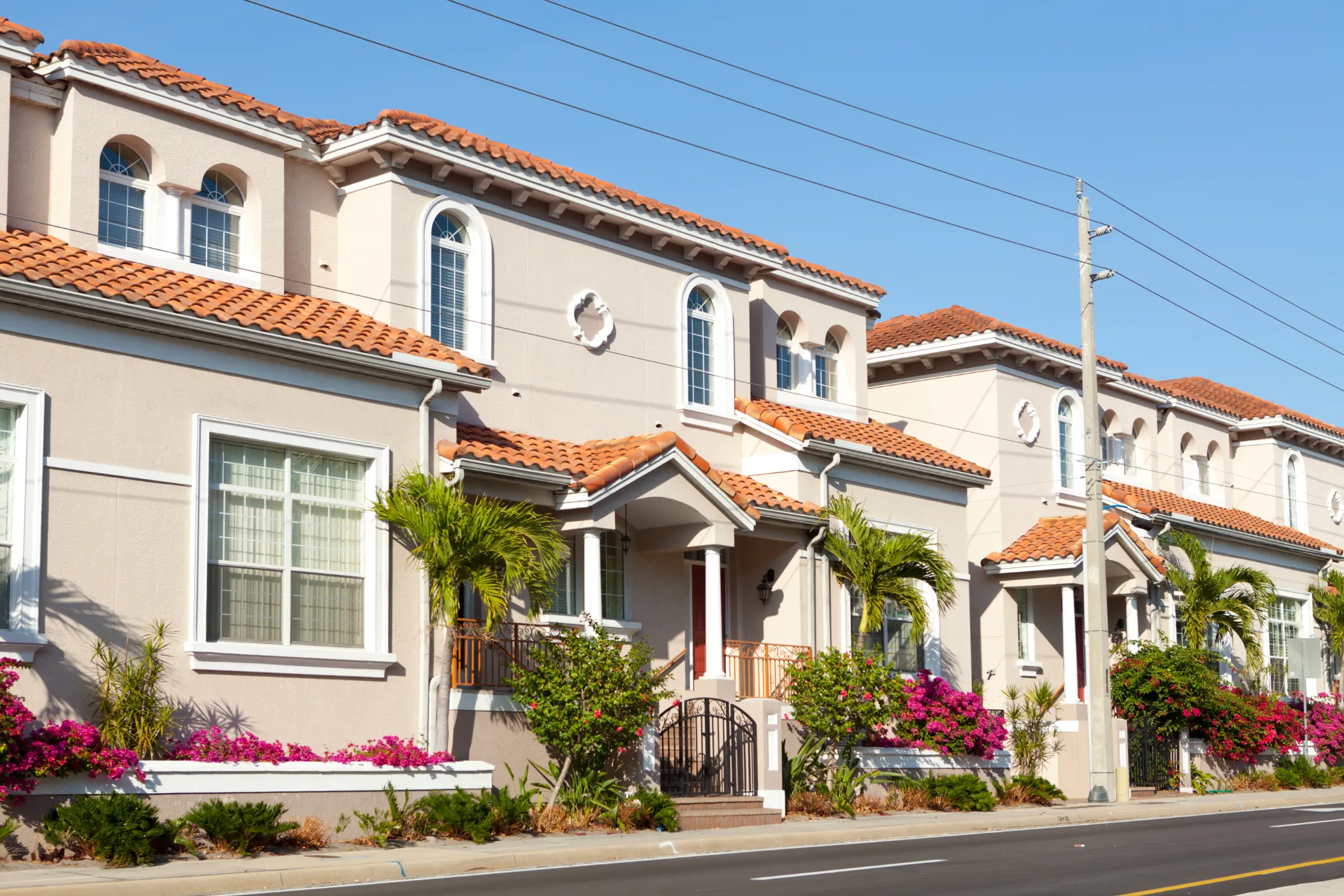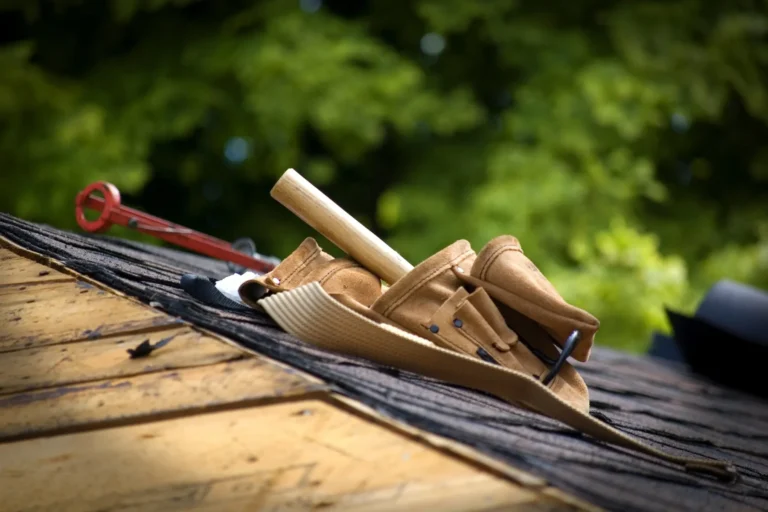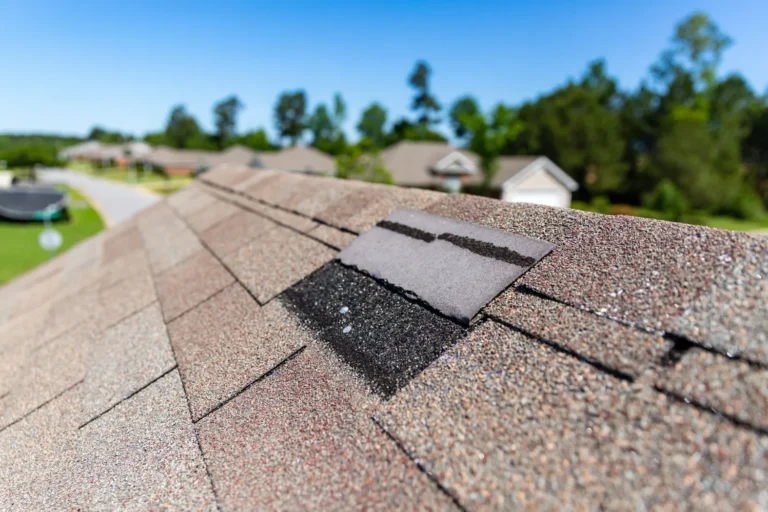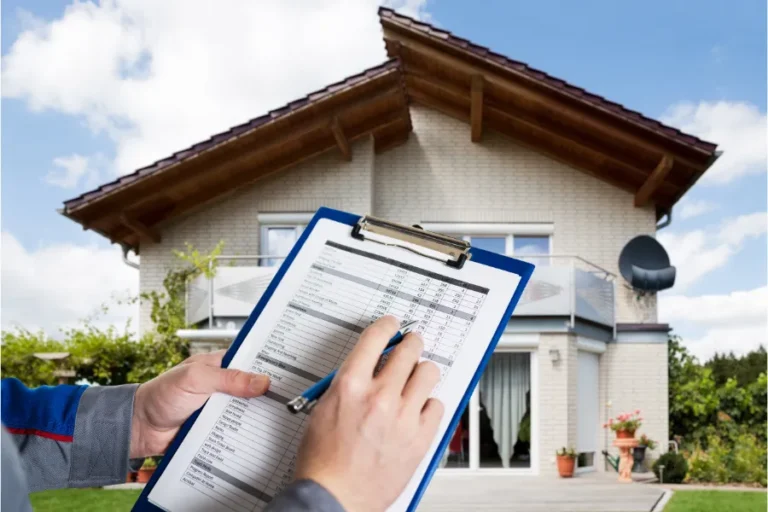
Florida Condo Association Roof Compliance Checklist

- Understanding Florida Roof Compliance Regulations
- Assessing Roof Condition and Maintenance History
- Ensuring Proper Materials and Installation
- Evaluating Insurance and Liability Issues
- Communicating with Residents and Board Members
Owning or managing a condo association in Florida comes with its unique set of responsibilities, and one of the most important is ensuring that the roof of your building complies with local regulations. As a result of Florida’s frequent storms, high winds, and extreme weather conditions, roofs must adhere to strict codes.
This Florida condo association roof compliance checklist will help you stay on top of your property’s necessary regulations and maintenance practices.
Understanding Florida Roof Compliance Regulations
Building codes in Florida are among the strictest in the nation, particularly when it comes to roofing. These codes ensure roofs can withstand extreme weather events, including hurricanes and tropical storms. Condo associations must comply with Florida Building Code (FBC) requirements and be regularly updated to reflect building practices and technological advances. Key regulations to keep in mind include:
General Requirements for Roofing
- Roofing Material Compliance: Roofing materials must withstand Florida’s specific weather conditions, including high winds and heavy rain.
- Wind Load Requirements: Roofing assemblies must be designed to withstand the state’s high wind loads (e.g., Category 4 Hurricane zones), including securing roof coverings to resist uplift forces.
Roofing Assembly Requirements (Section R905)
- Roof Coverings:
- Must be approved for use in Florida’s climate zones (e.g., clay tiles, metal roofing, asphalt shingles, etc.).
- Installation methods must meet or exceed the manufacturer’s specifications.
- Roof Decking:
- Decks must be structurally sound and properly secured to the framing.
- Wood sheathing must be at least 1/2 inch thick; plywood or OSB decking is typical.
Roofing Underlayment (Section R905)
- Underlayment for asphalt shingles: Current code calls out a minimum of (2) layers of 30# felt. To install a single layer of 30# felt requires the plywood joints to be sealed with peel-and-stick adhesive tape.
- Underlayment for Other Roof Types: The underlayment must be compatible with the roof covering (e.g., high-temp underlayment for metal roofs).
Roof Slope and Pitch
- Minimum Slope for Asphalt Shingles: A minimum slope of 2:12.
- Tile Roofs: Typically require a minimum slope of 3:12.
Roof Flashing (Section R905)
- Flashing Installation: To prevent water penetration, proper flashing is required at roof-to-wall intersections, valleys, skylights, chimneys, and other roof penetrations.
Roof Ventilation (Section R806)
- Ventilation Requirements:
- Adequate ventilation is required to reduce moisture buildup in attic spaces.
- This includes a balance of intake and exhaust vents (e.g., soffit vents and ridge vents).
- The total net free ventilation area should be at least 1/150 of the attic area, but in some cases, it should be at least 1/300.
Roofing Inspections (Section R909)
- Roof Inspections:
- Roofs must pass inspections before covering or completion to ensure compliance with the code. *The number of inspections varies depending on the municipality.
- Inspections are necessary to verify the proper installation of roofing materials, flashings, and venting.
Roof Deck Attachments (Section R905)
- Deck-to-Wall Fastening:
- Roof deck fasteners must meet minimum size and spacing requirements to resist uplift from high winds.
- Additional fasteners or ties may be required in high-wind zones.
Roofing for Coastal Areas
- Corrosion-Resistant Materials: Roofing materials in coastal regions must resist corrosion due to saltwater exposure.
Roofing Repair and Replacement (Section R908)
- Roof Replacement:
- The new installation must meet the current code requirements if the roof covering is replaced.
- Existing roof deck systems must be evaluated for integrity and may need to be reinforced.
Roof Design Loads (Section R301)
- Dead Loads and Live Loads: Roofs must be designed to support the weight of roofing materials (dead load) and additional loads like snow, wind, and occupants (live load).
Roof Materials Specific to Florida’s Climate
- Materials Approval:
- Only roofing materials tested and approved for Florida’s high-wind and heavy-rain conditions may be used.
- Florida Product Approval is required for many materials used in roofing.
To ensure compliance, a licensed roofing company like Dried-In can help evaluate whether your roof meets the latest Florida regulations, especially after significant weather events, or if you plan to replace it.
Assessing Roof Condition and Maintenance History
Regular roof inspections are key to identifying issues before they become significant problems. For condo associations, this means keeping track of the roof’s age, condition, and previous repairs or maintenance. Some things to consider when assessing your roof are:
- Age of the Roof: Most roofs in Florida have a 15 to 25-year lifespan. If your roof is approaching the end of its life, a professional inspection should be performed.
- Maintenance History: Ensure that any past maintenance work, including repairs and upgrades, complies with Florida’s codes.
- Visible Signs of Damage: Look for missing shingles, cracks, or areas of pooling water, all of which can lead to compliance issues if not addressed promptly.
A detailed roof maintenance history can help you plan for future repairs or replacements and meet your legal and insurance obligations. Our maintenance programs not only provide necessary maintenance to comply with the manufacturer’s recommendations and industry standards, but they also provide a documented history of your roof with photo reports, allowing you to visually see your roof without having to get on it.
Ensuring Proper Materials and Installation
Using the right materials for your roof is critical to ensuring compliance and longevity. Florida’s climate demands durable materials that withstand heavy winds, intense sun, and torrential rain. When evaluating your roofing materials, consider:
- Hurricane-Rated Roof Materials: These are designed to resist strong winds and impact from debris.
- Flashing and Seals: To prevent water leaks, ensure that the flashing around vents, chimneys, and skylights is in good condition.
- Underlayment: High-quality underlayment materials protect against water infiltration, critical in Florida’s heavy rainstorms.
Certified professionals must properly install your roofing system. A poorly installed roof can quickly lead to compliance issues, such as leaks or wind damage. Dried-In offers expert roof installation services that meet all local and state building codes.
Evaluating Insurance and Liability Issues
In Florida, condo associations must have adequate insurance coverage to protect their building and residents from unforeseen events, including damage from storms and hurricanes. However, insurance requirements also extend to roof compliance.
- Roof Insurance Requirements: Ensure your policy covers the roof and any necessary repairs or replacements resulting from weather damage. Some insurance providers may have specific guidelines or requirements based on the age and condition of the roof.
- Liability Concerns: If the roof is damaged or fails, your condo association could be liable if it was not adequately maintained. To mitigate these risks, keeping up-to-date records of roof inspections and repairs is essential.
Your insurance broker or roofing contractor can help clarify specific coverage options and liability protections related to your condo’s roof.
Communicating with Residents and Board Members
Effective communication is key in managing roof compliance in a condo association. Board members must be aware of their legal responsibilities, and residents must be informed of any disruptions caused by roof repairs or replacements.
- Transparency: The residents should receive regular updates on roof inspections, maintenance schedules, and necessary repairs. Clear communication reduces confusion and ensures everyone is on the same page.
- Board Involvement: Ensure the condo board is actively involved in the decision-making process for significant roof projects. The board should review inspection reports, insurance requirements, and vendor proposals.
- Resident Notifications: Before starting any work, notify residents about the project’s scope, potential inconveniences, and timelines. Transparency will help foster a good relationship with your community.
Condo associations must stay on top of roof compliance requirements in Florida to ensure that their buildings remain safe, secure, and compliant. If you need assistance with roof inspections, repairs, or installation, Dried-In is here to help. We can guide you through the process and put you on a regular maintenance plan so your roof remains compliant, putting you at ease.
Florida Condo Association Roof Compliance Checklist
This checklist will help Florida Condo Associations ensure that their building’s roof meets the state’s strict building codes:
- Understand Florida roof compliance regulations
- Ensure roofing is compliant with Florida Building Codes (FBC)
- Stay informed about the latest updates to FBC that affect roofing standards.
- Assess roof condition and maintenance history.
- Check to see if your roof’s age is approaching the limit for that specific material. If so, schedule a professional inspection.
- Review past maintenance, repairs, and upgrades to ensure they comply with Florida’s building codes.
- If not addressed, look for missing shingles, cracks, or water pooling, which may lead to compliance issues.
- Maintain detailed records of inspections, repairs, and replacements to plan future maintenance.
- Ensure proper materials and installation.
- Ensure roofing materials are rated for Florida’s high winds and impact from debris (e.g., hurricane-resistant shingles tiles).
- Inspect flashing around vents, chimneys, and skylights to prevent water leaks.
- Use high-quality underlayment materials to prevent water infiltration, especially during Florida’s heavy rainstorms.
- Ensure certified contractors perform roof installation to prevent compliance issues.
- Evaluate insurance and liability issues.
- Verify that your insurance policy covers roof repairs or replacements, including those due to storm or hurricane damage.
- Ensure your condo association is not liable for roof neglect by maintaining up-to-date inspection and repair records.
- Work with experts to clarify coverage options and ensure liability protection for the roof.
- Communicate with residents and board members.
- To avoid confusion, keep residents informed about roof inspections, repairs, and maintenance schedules.
- Ensure the board is actively involved in decision-making, including reviewing inspections, insurance requirements, and vendor proposals.
- Before starting roof repairs or replacements, inform residents about the scope, potential disruptions, and timelines.
- Ongoing roof inspections and maintenance
- Perform regular roof inspections to identify problems early and ensure compliance with building codes. Develop a proactive plan for future repairs or replacements based on roof inspections and maintenance history.
You May Like

Is It Time for Roof Repairs? Signs Your Property is Due for Them
Visible Wear and Tear on the Roof’s Surface Water Stains and Leaks Inside the Property Increased Energy Bills Roof Age and Maintenance History Presence of Mold or Mildew Typical asphalt shingle roofs last 15–25 years, with Florida’s harsh climate sometimes shortening that span. Ensuring the safety and integrity of your

Roof Damage Identification Checklist After a Florida Storm
Preparing for the Inspection Visual Inspection of the Roof Surface Inspecting Gutters and Downspouts Interior Signs of Roof Damage Assessing Surrounding Areas and Debris Living in Florida means you’re no stranger to the unpredictable nature of storms, especially during Hurricane season. High winds, heavy rains, and flying debris can all

Choosing a Roofer as a Property Manager: Everything You Need to Know
Understanding the Role of a Roofing Professional Key Qualifications and Certifications to Look For Evaluating Experience and Reputation Receiving and Comparing Quotes Establishing Effective Communication and Expectations Frequently Asked Questions As a property manager, your responsibilities go far beyond managing tenants and overseeing day-to-day operations. One of the most critical
